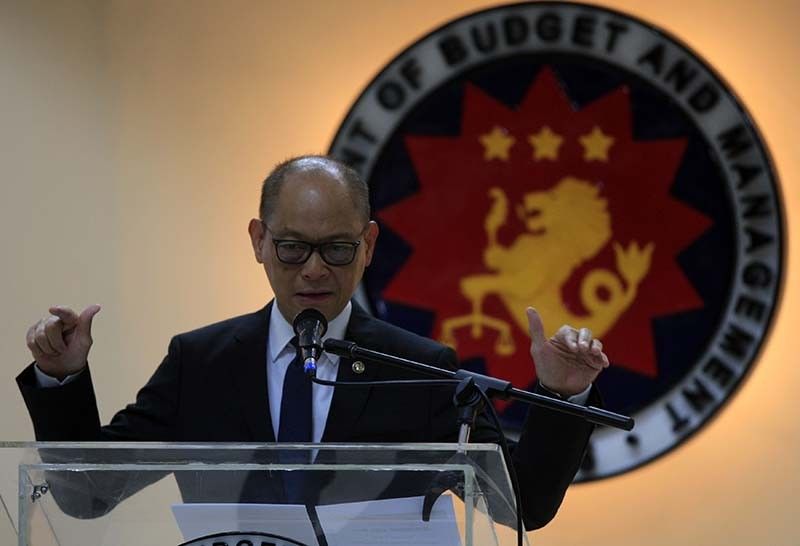Commentary: The costs of budget delay in the Philippines

The United States government has been on a partial government shutdown for more than 10 days now. By most accounts, some 800,000 federal employees are affected, either working without pay or placed on furlough, a temporary leave.
This shutdown is a result of a political deadlock between President Donald Trump’s unflinching insistence that Congress include in the budget a US$5.7-billion funding for a “border wall” that, according to him, will block illegal immigration and illicit drugs. Congress thinks otherwise, with its leadership describing the proposed wall as expensive and likely ineffective.
Back here at home, despite the delayed passing of the 2019 budget, there is no government shutdown.
By operation of law, the budget is rolled over from 2018, under the provisions of the Constitution. Instead, for more than a week now since the start of the year, the Philippine government has been operating on what is called a “reenacted budget.”
Since November, however, when delays in the House of Representatives raised the possibility of such a scenario, there have been numerous discussions on and analyses of how the situation will affect us.
In a nutshell, while we are operating on a reenacted budget, there won’t be anything new – no new projects, no expansion of programs and services, no new salary levels, etc. These pose very serious effects on the national economy.
For one – and, perhaps, the most serious implication – it weakens government spending that contributes to the national income.
Using the reenacted budget, the level of state spending follows that of 2018, foregoing the spending targets that would have supported our 2019 macroeconomic aspirations. Even assuming that the 2019 budget will get passed sometime in the first quarter of the year – by February, as some senators predict – the serious damage would have been done already, as the government will have less than a year to use these funds.
Making this delay even worse is the election ban on the release of public funds that begins on January 13 and ends on June 12. This wait brings the issue of the absorptive capacity to the fore. How fast, if at all, can the government agencies translate their resources into programs and projects this year?
It is thus a given that there will be delayed implementation of new projects this year, but with our bureaucratic process laden with CYA (cover your ass) steps that still needs to be played out, it is also a very distinct possibility that some of them may not be implemented anymore, significantly reducing the multiplier effect of state spending on the national income. When fewer projects are implemented, less employment happens, contributing not only to less consumer spending – and therefore less national income – but also in abetting poverty.
The possibility of a delayed and reenacted budget surfaced as early as August when the House of Representatives suspended budget hearings in opposition to cash-based budgeting. Thereafter, it has been one issue after another – from congressional “insertions,” misplaced allocations to favored contractors – that had further stalled the process.
While it is indeed a spectacle to watch democracy at work – with the principles of checks and balances and Congress’ power of the purse in the limelight, it may be good to ask at what cost are we doing all these, and, more importantly, who is bearing the cost?
As Trump and the US Congress both remain unwilling to compromise on their respective positions, the costs of their political drama rest with the federal employees who do not get their salaries, on their families who will have to survive without the salaries of their breadwinners, on the American people in general for the diminished or halted services, and on the economy for state underspending and its macroeconomic effects.
Similarly, in the Philippines, one of the faces of the budget impasse are the government employees.
While they are not placed in a furlough or asked to work without pay as their American counterparts, they have looked forward to – and probably committed – the salary increase from the fourth and final tranche of the Salary Standardization Law that would have moved them closer to more competitive – some say decent – salaries.
Worse, the state employees have become another set of unwilling pawns in this political game. Perhaps, recognizing that the salary increase of government workers has the potential of becoming a popular issue – and, thus, a leverage – the Executive has conveyed – at times, less subtly – the message that this situation has been brought about by the failure of Congress to pass the budget, effectively putting the blame on the legislators who are seen as blocking the passage of the budget.
On the other side, knowing how unforgiving people can be when it comes to withholding something that is rightfully theirs, Congress is attempting to stave off their wrath by taking a position advantageous to government employees – that the salary increase may be implemented by the government, even with a reenacted budget.
Of course, there will be those who will argue that the Filipinos are the eventual winners in this exercise for the democratic processes are present and working. After all, we fought for democracy in favor of the one-man rule and its more efficient decision-making process where no questions may be asked.
Sooner or later, the handiwork of political compromise will come to bear. As if magically, everyone will eventually find Solomonic wisdom that will break the stalemate. But, after all is said and done, when the dust of political compromise has settled, like the stock market reports say, there will be gainers and losers.
And, let’s face it, the gainers will most likely be the same cast involved in this melodrama. Horse trading comes to mind, where they give a little, take a little; and in some cases, give a little, take a lot. In the end, they all get something out of it – legitimately or not.
The biggest loser, in my mind, would be the economy. And, when the economy falters, the Filipino people suffer too. Without much opportunity to participate except to witness the saga, our economic fate has, sadly, been relegated to the role of being a hostage to the maneuvering and bickering of a few.
Edwin P. Santiago is the executive director of think tank Stratbase ADR Institute, a partner of Philstar.com.
- Latest


























